You're on the Young People Site
Dedicated to self-harm recovery, insight and support.
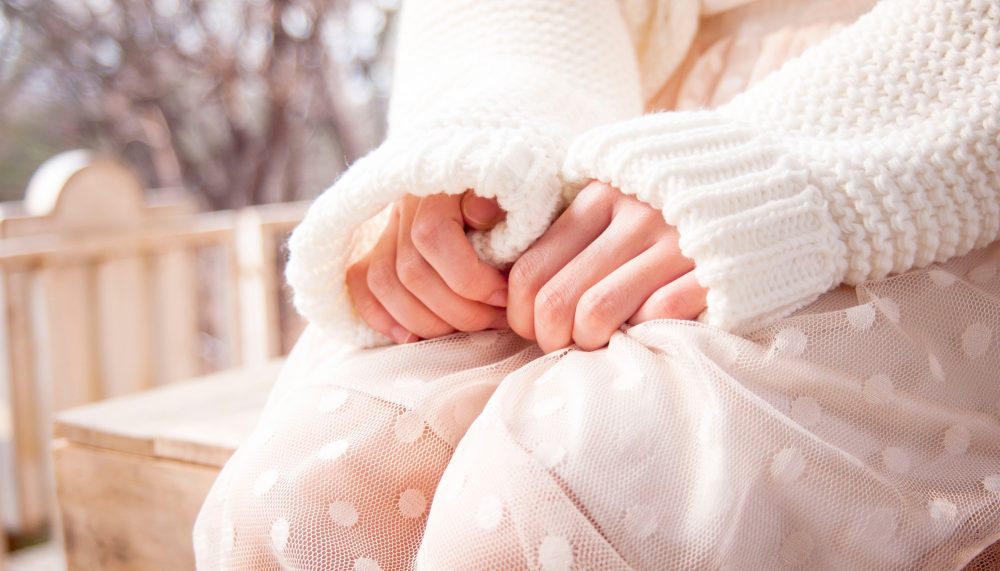
Some people like this lead up to Christmas, some (like me and my family!), really don’t!
The Christmas decorations look pretty and the shops get busier and the Christmas feeling is in the air – but it doesn’t make me get the warm Christmas glow; in fact it begins to make me stressed right from the moment it starts…
The pressure for the perfect film like Christmas family gathering is unachievable – the perfect family game time; the perfect present wrapping, the perfect friends to go out with, the perfect family to share it will – perfection doesn’t exist, in any place at any time.
The media Christmas portrayal adds to our sense of dread – the pressure to smile, laugh, not row, not feel sad – can make us feel very detached from Christmas: so this year, in the lead up here are some tips:
1. Ignore TV films and adverts! We aren’t going to reach a Hollywood Christmas ideal – so let’s not bother. Watch Elf and comedies – they keep a good perspective on it!
2. Try to imagine Christmas day now – what works for you? Do you need to communicate any of that to your family – who don’t you want to see over Christmas? How long do you have to visit relatives for? Begin to start the conversations now so they don’t come as a shock to your family – take control and be prepared to compromise.
3. Make stuff – loads and loads of stuff! Don’t buy it, make it. Keep your hands and mind busy, the personal stuff doesn’t need to cost much nor does it have to be perfect – enjoy the process and the result.
4. Don’t give yourself sky high expectations of yourself over Christmas. If you need to take regular breaks from family, do it. Look after yourself now so that you have the energy for it as it gets closer; plan out the Christmas holidays so that you get a good balance of rest and play.
Love,
The SelfharmUK Team

“ I cut myself to live, not die”: A response to Chester Bennington’s death.
This is a quote from a young person we worked with at SelfharmUK. It is the voice of hundreds of teenagers who are using self-harm to live; self-harm is a coping strategy, for a time, until those thoughts, feelings and pressures become resolved.
For most, it passes – for some quicker than others, for some not until later in life, very occasionally it’s a life-long coping strategy.
Today, Chester Bennington from Linkin Park took his life. A life filled with abuse from a young age which led to drug and alcohol issues, which in turn led to long bouts of depression – the most recent it seems, linked to his friend’s suicide attempt. It makes us all sad – whether we were fans or not – because a gifted, talented and troubled man found life so hard to continue. Because he wasn’t able to share his pain. Because he felt there was no other way. Because he was under such pressure. Because…...we will never know why.
At some many points Chester had choices which he may not have felt he had: who to talk to; where to ask for help; how to get the dark thoughts out in other ways – like his music; to take a break from the public pressure; to stay home and hug his wife and kids; to confront his past…...These were all choices that he possibly didn’t know he had, and now never will.
They are choices that will affect his children, wife, family, friends, neighbours and fans for varying lengths of time: but each will feel pain.
Inner pain is something we all struggle to talk about: the fear of being judged; the fear of everyone’s reaction (over reaction); the consequences of what telling some- one about your dark thoughts might mean; how to find the words and who to tell.
At SelfharmUK – we like to listen; we never ever judge; we are safe people to explore these thoughts and feelings with; we are unshockable (I promise you that!); you can practice what you want to tell your family by telling us first; we will keep in touch with you for as long as your recovery takes; we can discuss your choices with you – especially when it feels like you don’t have any.
Self-harm is about living, not dying.
Very occaisonally we feel the shift from wanting to cope, to wanting to stop coping.
That’s when we have choices: who to talk to, how to communicate, who won’t judge us, who is ‘safe’.
You can ring or text the Samaritans on 116 123 or email jo@samaritans.org , Childline can be contacted on 0800 1111, or online counselling support at www.the mix.org.uk
Or sign up to our online support at info@selfharm.co.uk
You are not alone.
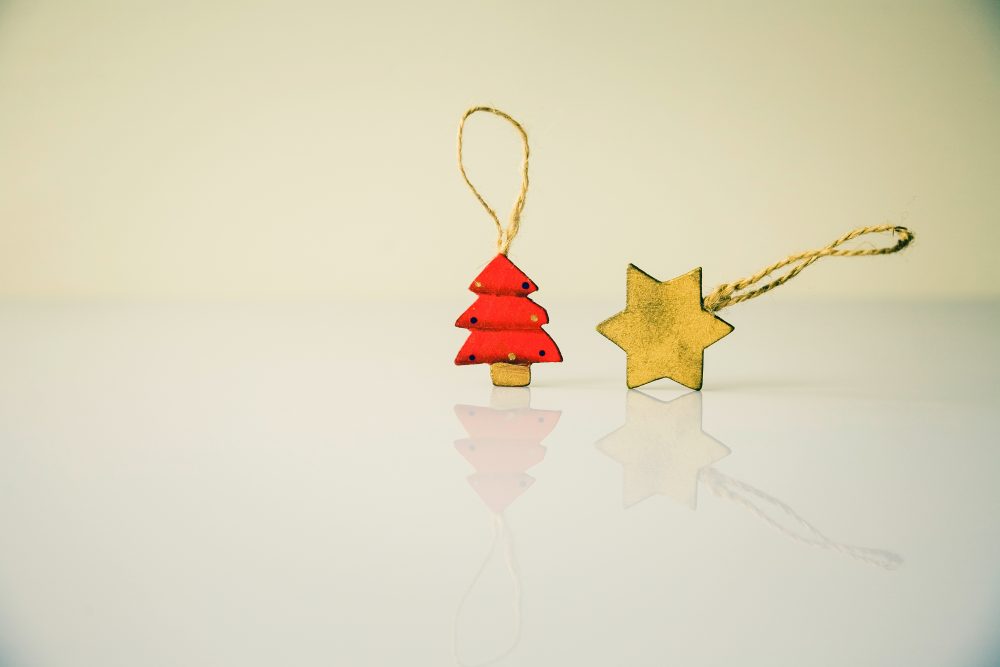
This article was written by a member of the SelfharmUK team, Jo Fitzsimmons. Jo is our Alumina Program Manager and has parented a child who was a self-harmer for many years. She has an acute understanding of the impact self-harm has on not only young people, but their whole family. She hopes you find the below helpful.
All those lovely adverts on tv of families playing board games, watching each other open their presents laughing and smiling, the Christmas films where families realise they love each other more than any present they have ever had….
In my house reality looked like:
Smiling when you got a knocked off Care Bear that was misshapen and looked nothing like the ones my friends had; watching your parents argue by 10 am as the pressure to be nice to each other all day is too much; my missing my Nan who passed away recently but we never mention her; once the presents have been opened we all disperse and meet up 3 hours later to eat too much food (that I hate myself for doing) and then fall asleep watching a crud film….
Sound like yours?
Or Maybe YOU LOVE Christmas?
Perhaps having people around you is a good thing as it makes you smile, gives you chance to see people who you actually like spending time with and you feel you can talk to; maybe the Christmas films take you back to feeling younger and happier…?
Either way – we can’t ignore it…It is Christmas! However we feel about it….
We know for some young people the idea of endless days spent at home with family is hard; perhaps being told you have to see relatives you don’t like causes you anxiety; perhaps you are missing a person you love at Christmas. However you feel, we want to get you through this, so here’s our tips for you:
Surviving Christmas Tips:
- If you struggle spending time with family you don’t often see – find the nicest one in the room and zone in on them (easy if it’s someone you can play on an ipad or wii with so your family can’t complain too much about you ‘not being sociable’!
- Give yourself breaks on your own if you need them- song lyrics, art, writing, music, reading, knitting are good ways to relax, sometimes our hands and our minds are best off busy so we focus in things other than how we feel.
- Plan- maybe do yourself a daily plan to keep busy, combining gentle exercise with your fav hobby…try a new thing you have been thinking of.
- Have a ready made contact list of friends if you need to – people you can text/message day and night.
- If you are missing a loved one, how about making a present for them and putting it under the tree? It can be very helpful to acknowledge them over the Christmas time. Memory boxes out of shoes boxes, stars to put on the Tree, letters to the person – might all be helpful things to try.
- Relaxing is so important especially if you find this time of year hard- slowing your breathing and relaxing your muscles helps reduce your anxiety, try downloading a Mindfulness app, give it a try a few times….
- Eat healthily and sleep well – try and keep routines as much as possible, and yes, we know how tempting it is to eat the whole box of Quality Street and we all deserve a treat but….
- Alumina on Demand is our on demand support for young people aged 14-18 who are struggling with self harm – while it’s the Christmas holidays, maybe join up and begin to work through the programme while you don’t have school and college pressures? Most days of the Christmas break someone on the Self Harm UK team is working, you can email us.
- If you happen to feel very low, you can call Childline or Samaritans anytime at all.
May you know Hope this Christmas.
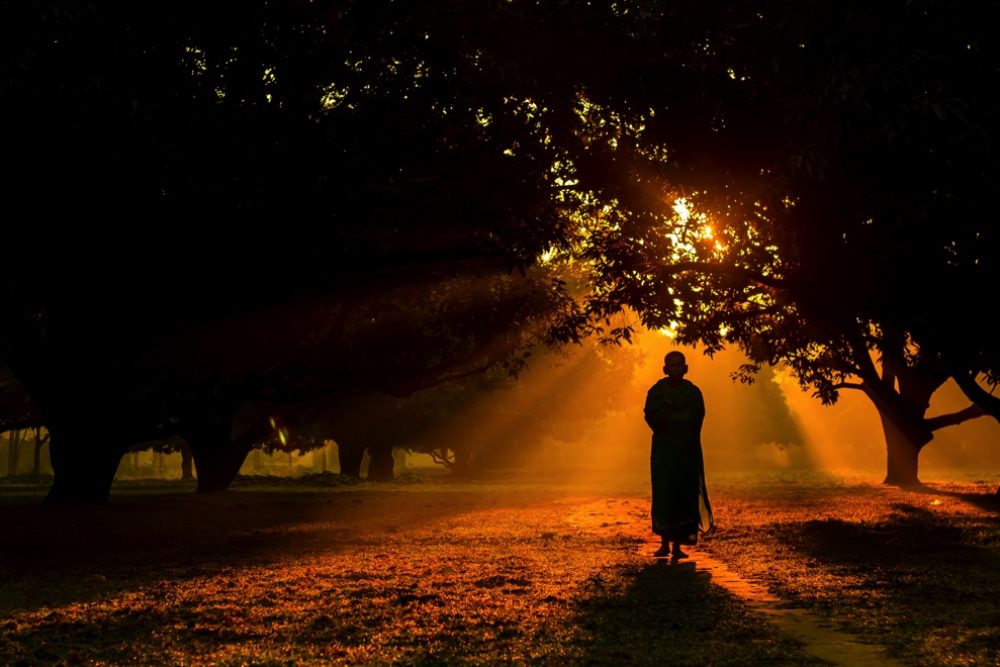
Oliver shares with us some of their own journey around finding peace with their mental health and identity. This is a personal story of transformation and whilst none of this may ring true for you, Oliver challenges us to think about our own recovery and how community and the support of others can bring about the change that we need in our own lives to heal. SelfharmUK is for those from all backgrounds and faith groups, this story is personal and in our sharing of this article our only hope is that you are challenged to find a community that works for you.
I grew up a pastors’ daughter on the outskirts of Birmingham, attending church religiously, so to speak, every Sunday. I enjoyed running around with my best friend Laura – who was also the daughter of a pastor – as opposed to actually participating in the service, although I did have a handful of favourite hymns which I would frequently request my father to play each week. Another highlight of mine was the continuous handfuls of candy I would convince the elderly churchgoers to give me; I had a particularly convincing smile.
My love of attending church came to an end gradually as I got older. Running around was no longer acceptable and my convincing smile had slowly withered away. I began losing interest and after 10 years of working in the same job my dad resigned as head of the church. We moved out of the vicarage and began attending a different church slightly further away – I still don’t know for certain why we stopped attending our original place of worship, although I have the suspicion tensions were high after we left and perhaps some attendees of the church saw us leaving as giving up on our faith.
As a family we began a new leg of our worship at a church run by very close friends. A new start had sparked my interest once again, however a decline in my mental health had meant that burst of intrigue didn’t last exceptionally long. As depression sank in I started to find every aspect of my life mundane and uninteresting, including spiritually. By this time I was 11 and had stopped attending church altogether. Not particularly long after this I became isolated and also began to self-harm.
Child & Adolescent Mental Health Service (CAMHS) took me on as a patient in the year 2012 due to my mums’ persistence to get me medical help – which was predominantly driven by her faith, words of solidarity she took from the Bible, and the network my parents had built up around them over many years of hard work within the Christian community. I received frequent therapy sessions plus plenty of support from friends and family, but their efforts went unnoticed and I continued to deteriorate. My self-harm persisted, I attempted suicide and was starving myself.
After receiving several diagnoses including depression, anxiety, suicidal tendencies and EDNOS (Eating Disoders Not Otherwise Specified), I was hospitalised on the 29th of May 2013, after being in and out of A&E several times. I vividly remember my mother getting the call the night before, stating that a bed had been made available and that I would be a full-time in patient by the next day.
The 8am drive to the hospital was bleak, literally and emotionally. There was a light drizzle of rain and the fog had begun to stagnate, as if it would never lift. To say there was an air of pathetic fallacy that morning is a gross understatement. Along with the macabre shadow following me around, I too felt an absence of God, in all its forms. An absence of communal support. An absence of faith. These things shaped my childhood and now had dwindled away. It felt as if the life I was living were completely separate from my younger self. All trace of who I used to be had been destroyed in the face of depression, also dragging with it a previously overwhelming sense of trust in my parents and love for my religious community.
Those 8 months in hospital were the centre point of one of the most transformative times in my life, and still today impacts who I am greatly – luckily for me the treatment was a success for the most part and it sculpted me in a positive manner.
I was eventually discharged on the 13th of December 2013, yet there was still a long road of healing ahead. I was put under the home visiting team working for CAMHS who, for the first few weeks, would visit my house each day to not only monitor my weight and blood pressure, but also my scars, if there were any new ones, and how my emotional stability was faring.
No interest in the spiritual life had showed itself again as of yet, for all my energy and time was being spent on merely trying to function once more in a society I had been isolated from for the best part of a year. This remained the case for some time and while a lot of progress was being made in the realm of my mental health, my spiritual health continued to be malnourished and uninspired. (Also during this time I came out as genderqueer, otherwise known by its more socially acceptable term of ‘non-binary’, which also aided in my positive progression with my mental health. I would go into this further but I feel it would best to leave it for its own article).
It wasn’t until the dawn of 2016 that I set about exploring afresh the religious aspect of my life – or lack of, for that matter. This led me to exploring Buddhism more in-depth, and took me to my local Triratna Buddhist centre. Entering the building I felt something which had been absent for most of my life; a spiritual community in which I had a place. A spiritually stimulating community where my gender expression and sexuality did not deem me unworthy, but where my actions and the peace or hatred I contributed to the world defined me. From then on I attended the centre every Thursday evening where groups of up to 60 people would meditate and have discussions on different Buddhist teachings.
I began attending the centre in May this year, and by July I had been discharged from CAMHS after being a patient of theirs for 4 years. The absence of CAMHS threw me off kilter very briefly for a few weeks, which resulted in me taking that time off from the Buddhist centre to fully assess the direction I wanted my religious practice to go in. As I am writing this it is getting towards the end of September and I have been attending the centre again since the beginning of this month and now I can truly see how deprived and dissatisfactory my life is without Buddhism.
I feel I can truly now comprehend the importance of a spiritual or religious community in aiding positive mental states.
On that note I feel it is time to bring this article to a close, but not quite yet. I would like to leave you with a warning not to take my words from a subjective viewpoint and believe I am saying that Buddhism is the only way to connect spiritually. Buddhism is not the only way, and that is definitely not the message I would like people to take from this. We all connect to various communities differently, and what I am trying to project as best I can, is that we should not give up on finding the right place for us if the first one does not work out how we would have liked. There is a place for everyone to find religious inspiration and encouragement, we just have to find it. This is my attempt at motivating you to find it.
Oliver Fitzsimmons, aged 16
Image courtersy of Jubair1985

Oby Bamidele, a qualified counsellor helps us to think about the best way to reach out and work with young people who are self-harming. She challenges us to think first about ourselves and leaves us with powerful lessons in helping young people to own and explore their pain.
When I started working with young people who self-harm, I was deeply challenged in my thinking and in the way I work. I realised that in order for me to support a self-harmer I had to do the following things.
1) Challenge my own thoughts and feelings about self-harm
2) Stop trying to “fix” the self-harmer’s behaviour
3) Listen
4) Ask questions
5) Be honest and open
As soon as I began to apply the above,
I noticed a vast improvement in the way I worked with my clients. It became about understanding the emotions behind self-harm rather than focusing on self-harming itself. One thing all self-harmers have in common is emotional pain.
Emotional pain can be so intense and it can hurt just like physical pain. With physical pain you can at least pinpoint the source. Not so with emotional pain. Sometimes the busyness of the day can block it away, but soon enough that same old familiar feeling that threatens to drown, condemn and consume you resurfaces. Self-harm itself becomes the outlet to release the emotional pain and find respite, even if just for a little while.
Listening is a major part of the work in self-harm as it allows the self-harmer to process their thoughts and feelings. There is a tendency to block off or suppress inner thoughts and feelings which are too painful to accept or perhaps we feel others will find unacceptable. However, the more you can open up to working through those feelings, the more you can understand.
I encourage my self-harmers to own their pain using the model:
FEEL IT, OWN IT, EXPLORE IT
1) Feel your pain - When you recognise that familiar painful feeling beckoning, allow yourself a few minutes to sit and feel the pain. My emotional pain is my mind’s way of telling me that there are some deep feelings which I need to address. What is the pain you are feeling? Is it hurt, shame, anger, hate, betrayal, jealousy? Do you feel like crying? It helps to speak out what you are feeling. For example, “I feel ashamed” “I feel like crying” “I feel horrible about myself”
2) Own Your Pain – We tend to struggle to own our pain, because it is usually associated with a judgement of ourselves and shows a side of us we don’t want to accept. For example, it might feel really difficult to own feelings of hate, shame or rejection. But the emotion already exists and until we own it we can’t address or begin to understand it.
3) Explore your pain – Once you have been through the process of feeling and owning our pain, you are then able to explore and understand it. Remember that pain is a signal that something is amiss within us. We can use our pain to direct us to the source. What triggered the feelings? What was the experience? What does it say about you? How do you feel about you? What is the way forward?
Working through emotional pain in this way is a powerful self-awareness practice and can really heal painful emotions.
Oby Bamidele (MBACP)
Counsellor
web: www.obybamidele.com
website: www.wisegate-schoolcounselling.co.uk
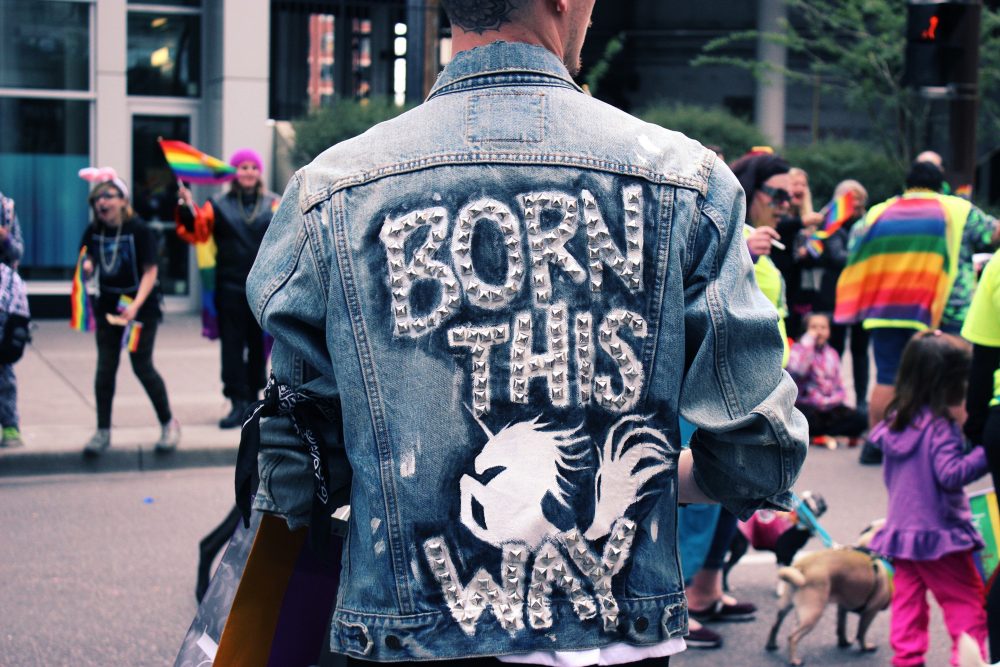
In this article SelfharmUK Project Manager Ruth Ayres sits down to talk to Oliver and Lewis about their gender identity and self-harm
SHUK: Oliver, what age did you begin self-harming?
O: I started at 11 years old, I have always struggled with talking about my emotions and I remember the exact moment my eating disorder started. I was in Paris on a school trip and my boyfriend at the time was talking to a friend and said my thighs were really fat. I look back now astonished, I was a size 10 at the time. I was nowhere near fat. But that comment had a huge effect on me. I can remember everything about that moment, from what I was wearing to the exact place we were in Paris.
SHUK: How did you self-harm?
O: Lots of different ways, I was diagnosed with an eating disorder when I was 12, this was a lot to do with stopping my body from developing as a girl. I didn’t want that to happen. I was hospitalised for 8 months, from May to December 2013. I was force fed in that time. Not by way of a tube, but I was told, I could eat a meal or drink a high calorie drink, which I have to say tasted disgusting. I picked the drink though, because at the time the thought of chewing was awful for me.
SHUK: Really why so?
O: I don’t know; I just couldn’t cope with it.
SHUK: Were you self-harming in other ways?
O: Yeah I was cutting and I tried to take my own life, on 2 occasions.
SHUK: Jo, (Oliver’s mum) how was it for you when you first realised Oliver was self-harming?
J: Awful, I felt like a massive failure and I was constantly asking the question why couldn’t Oliver talk to us about their feelings. Given all the jobs I have done, often in counselling and supporting young people, I felt like I had massively let Oliver down. I had to however begin to think about how we as a family helped Oliver to get better.
SHUK: What did you want to do?
J: A combination of wrap Oliver up in cotton wool and scream at the whole world. I wanted to stop them self-harming and essentially make everything better.
SHUK: Did you at this stage have any idea why?
J: Not at all, Oliver had struggled with their transition to high school and we as parents assumed that this was the reason for their self-harm.
SHUK: Oliver, can you talk to me about your gender identity?
O: I feel totally fluid in my gender at the moment, and I am not sure if I want to fully transition my body from female to male. I am living life as me, non-defined by my gender. I would describe myself as Agender – living without gender rather than transgender.
SHUK: Do you think your self-harm was linked to your gender identity?
O: Yes; I felt a huge lack of community and acceptance, community is really important and I now feel a huge sense of belonging to the queer community (Lesbian, Gay, Bisexual, Transgender). There is a total lack of education around gender identity and we are still seen as outcasts I guess. I mean just recently 50 people were killed in Orlando, in place where they should have been safe. I think people who are exploring gender identity feel unable to come out for fear of not being accepted and loved, or killed. My self-harm was about controlling my emotions that I didn’t understand or couldn’t talk about, these emotions were linked to my gender identity.
Oliver and I had a long discussion about where they were now and they were able to express very freely the peace they now feel as a result of being agender. Oliver was clear with me that there needed to be more education around being agender, and they became incredibly passionate about the fact that people had died and the world needed educating. However, what is totally evident and what they do know is that they feel more comfortable in their own skin than ever before. They feel much more confident in expressing themselves. Oliver feels there is a sense of them being able to understand themselves and not conforming.
SHUK asked Jo what advice she would give to parents if their child is self-harming?
J: Don’t panic, talk to someone outside of the family for support and try in a very gentle non- threatening way to open up conversations with your children about self-harm.
SHUK: Oliver, if you could go back 12 months what advice would you give yourself?
O: I would tell myself to not try and run away from my community and I would tell myself to accept that this is who I am. I would try not to be anything other than myself. I would also remind myself that being queer is empowering, not strange. It is an escape from a heteronormative society, which is something I’ve always searched for, and that one day I will finally be free to be as queer and loud as I want.
Since coming out Oliver has not self-harmed for 18 months and is doing extremely well, it is obvious from my time with them that they are at peace. Oliver is able to speak honestly and freely about who they are and I have to say they are a very inspiring person to be around.
Lewis Hancox is YouTube vlogger and up and coming comedy writer, with many exciting things in the firing line, he also happens to be transgender. Lewis took part in a channel 4 programme in 2011 called My Transsexual Summer, which followed 7 people at different stages of their transition. Lewis has now completed his surgery and feels far more at peace than ever living life as a man. Lewis has always identified as a heterosexual male and for him the loneliness of living as a girl was incredibly tough.
Lewis gave me some of his time over coffee one afternoon and I was able to ask him a few questions about transgender young people, suicide and self-harm. Here is what he had to say.
SHUK: Was self-harm anything that ever you struggled with, by this I mean any area of self-harm from cutting to self-poisoning to eating disorders?
L: Well actually I was going to answer no then, but I guess you’re right, eating disorders are part of self-harm. I developed an eating disorder when I was in high school and this was due to the changes I was seeing in my body, I was desperate to not go through puberty as a girl and wanted to stop the development of my body parts as much as possible. I was diagnosed with anorexia and I knew there was something else underlying this. If I’d have known about being transgender back then this would have definitely helped, I would have felt like there was a light at the end of the tunnel.
SHUK: Were you ever hospitalised?
L: Yeah I was, due to my periods stopping they needed to be sure that my vital organs were not shutting down. I was in for a night, they ran some tests and I was discharged. I was then referred to a counsellor.
SHUK: How can we help transgender young people around self-harm?
L: I think education on the subject is the key, when I saw my counsellor after being discharged form hospital my mum mentioned to her that when I was younger I never wanted to wear girls; clothes or be called “she”. The counsellor dismissed this and said “oh no that’s nothing, lots of young children feel that way.” She put my eating disorder down to my parents splitting up. I know that if I’d have had the space to talk about my confusion around my gender it would have been different. It’s about people being educated, especially professionals.
SHUK: Why do you think self-harm and suicide is such a massive issue in the Trans community?
L: I think there is a few reasons really, I think that people feel isolated and unaccepted and even when they have come to terms with being trans themselves they often feel isolated and rejected by their family and friends, who perhaps don’t understand. I also think a huge issue is the waiting times for people to have access to testosterone and surgery. I was rejected for my surgery in St. Helens and I waited two years for testosterone. This means that even when people have made their peace with being trans, they still feel out of control while they wait for the right support to start their transition. Self-harm is something that they can control and I think this is why it is such a big issue. I have trans friends who have self-harmed and also attempted to take their own life.
SHUK: If you could go back to in time to your younger self, what would you say?
L: I would reassure myself that I am going to live a perfectly happy life once I have transitioned and that my body isn’t the be all and end all. I would tell myself to not put my life on hold and focus on my ambitions and things that I can work towards. I feel like I lost a good few years of my life when all I could focus on was my transition and I guess a part of me regrets that now.
Gender continues to be a complex, challenging and difficult subject for many young people, gender identity is a concept that needs to be talked about, celebrated and accepted.
“The secret of change is to focus all your energy, not on fighting the old, but on building the new.” Socrates
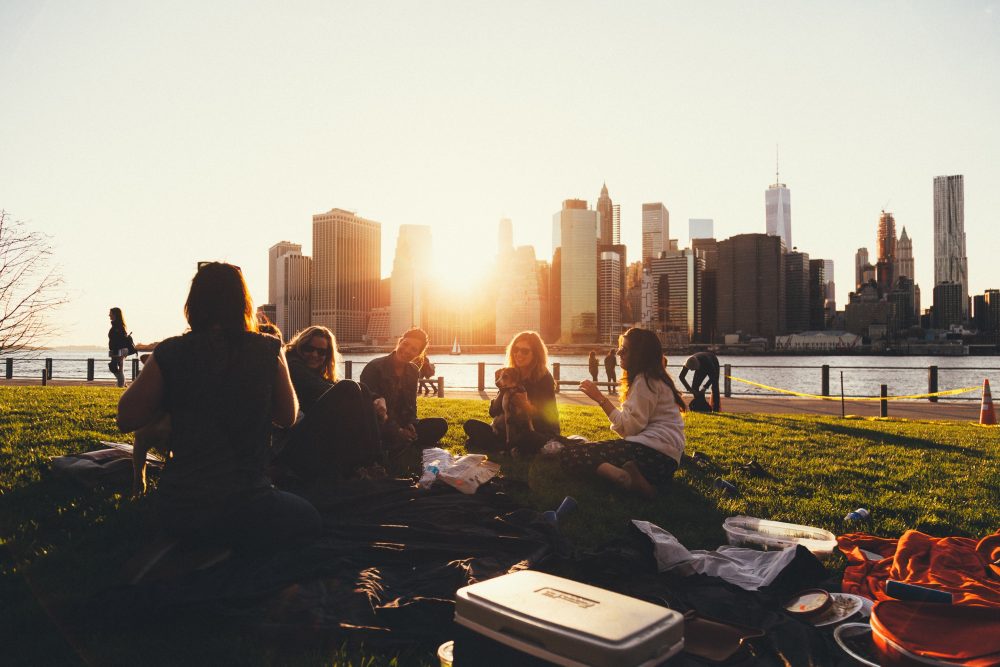
You could say my family is pretty dysfunctional and all over the place, there have been a number of divorces, step siblings have come and gone, and living in two houses can be tiring. But at the end of the day, we are family. However, for me family doesn’t end at this.
During the Easter holiday, I spent a week with a pretty large group of friends who I consider to be family. Why family? I’ve never really thought about the ins and outs of why I felt like I was surrounded by family – it just felt like that. So I had quick think and these were the reasons that immediately sprung to mind:
- Inclusivity and acceptance – Some of us had known each other for years, others were there for the first time and didn’t know anyone. But that didn’t matter, no one was left on their own, everyone was included. It didn’t matter who you were, what you looked like, what you did or where you came from, you were totally accepted for who you are! When I spoke to a number of people who had come along for the first time, they all mentioned how everyone was so welcoming and how comfortable they felt.
- Something shared – In all of our families, there may be certain values/beliefs/interests that are shared, and with this group of people, we all shared the same faith. It brought us together and created such a special family feel.
- People who care and help you – I was surrounded by people who really cared about each other and genuinely wanted to get to know you more. Some of these people have helped me through a lot and continue to – I can’t explain how much they’ve lovingly challenged me, helped me grow, and have encouraged me.
- You don’t have to hide how you feel – As these people genuinely care about how you’re doing, they don’t want you to put a mask on and pretend everything is okay if it isn’t. There is no shame in having a big cry around this lot!
- You don’t have to see them all the time but still have that connection – This group of people are from all over the country and many of us won’t see each other for months at a time, but whenever we do, things are still the same. That’s the thing with family, it doesn’t matter where you are or how often you see each other, you still have that bond!
So I suppose that’s why this great bunch of people feel like family to me, being amongst them just feels like home!
Family doesn’t have to stop at who you live with, or who you are related to.
Who do you consider family?
